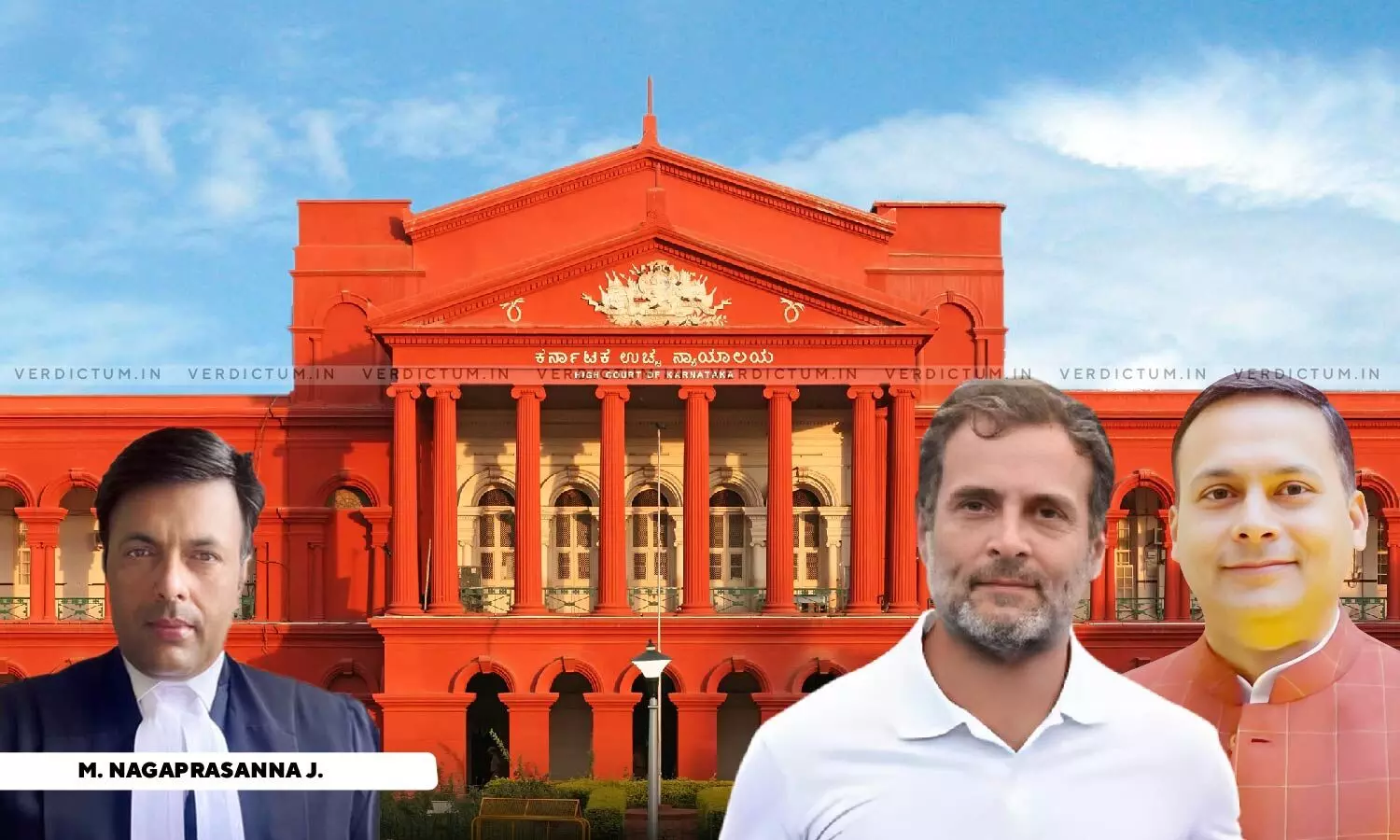
How Would Tweet Against An Individual Create Enmity Between Groups: Karnataka HC While Staying Probe Against Amit Malviya For Remark Against Rahul Gandhi
 |
|The Karnataka High Court has stayed the investigation in an FIR against Amit Malviya, in-charge of BJP's National Information & Technology Department for an alleged defamatory tweet that he posted on Twitter against Congress Leader Rahul Gandhi. The Court was of the opinion that the complaint did not divulge how the tweet could incite and create enmity between different groups to invoke Section 153A of the IPC.
The tweet that became the basis for a complaint for the offences punishable under Sections 505(2), 153(A), 120(b) read with Section 34 of IPC said,“Rahul Gandhi is dangerous and playing an insidious game…”.
A bench of Justice M. Nagaprasanna while staying the investigation and noting that the kernel of the said provisions is that it should create enmity between different groups, observed, “The tweet afore-quoted is against an individual who is said to be the leader of the Indian National Congress and if it is against an individual how would a tweet against an individual become an act of creating enmity between two different groups be invoked against the petitioner. Section 505(2) of the IPC which deals with enmity between classes cannot also indicate how a tweet against an individual would become a reason for enmity between classes. An individual is neither a group nor a class for invocation of Section 153-A or 505(2) of the IPC. The complaint does not divulge how the afore-quoted tweet could become the offences under the afore-said provisions of the IPC”.
Advocate Tejasvi L Surya appeared for the petitioner and SPP B.A. Belliappa appeared for the respondent - State.
It was alleged that the tweet was not only derogatory but would also bring in enmity between two different groups.
Therefore, after considering the relevant submissions and the nature of the allegations, the bench was also of the opinion that if the investigation is permitted to continue, then it would go against the judgment of the Apex Court in Patricia Mukhim v. State of Meghalaya (2021)15 SCC 35.
Section 153A provides provisions for punishment for promoting enmity between different groups on ground of religion, race, place of birth, residence, language, etc., and doing acts prejudicial to maintenance of harmony. While Section 505(2) of the IPC is to the same effect which deals with statements made creating or promoting enmity, hatred or ill will between classes.
Cause Title: Amit Malviya v. State of Karnataka